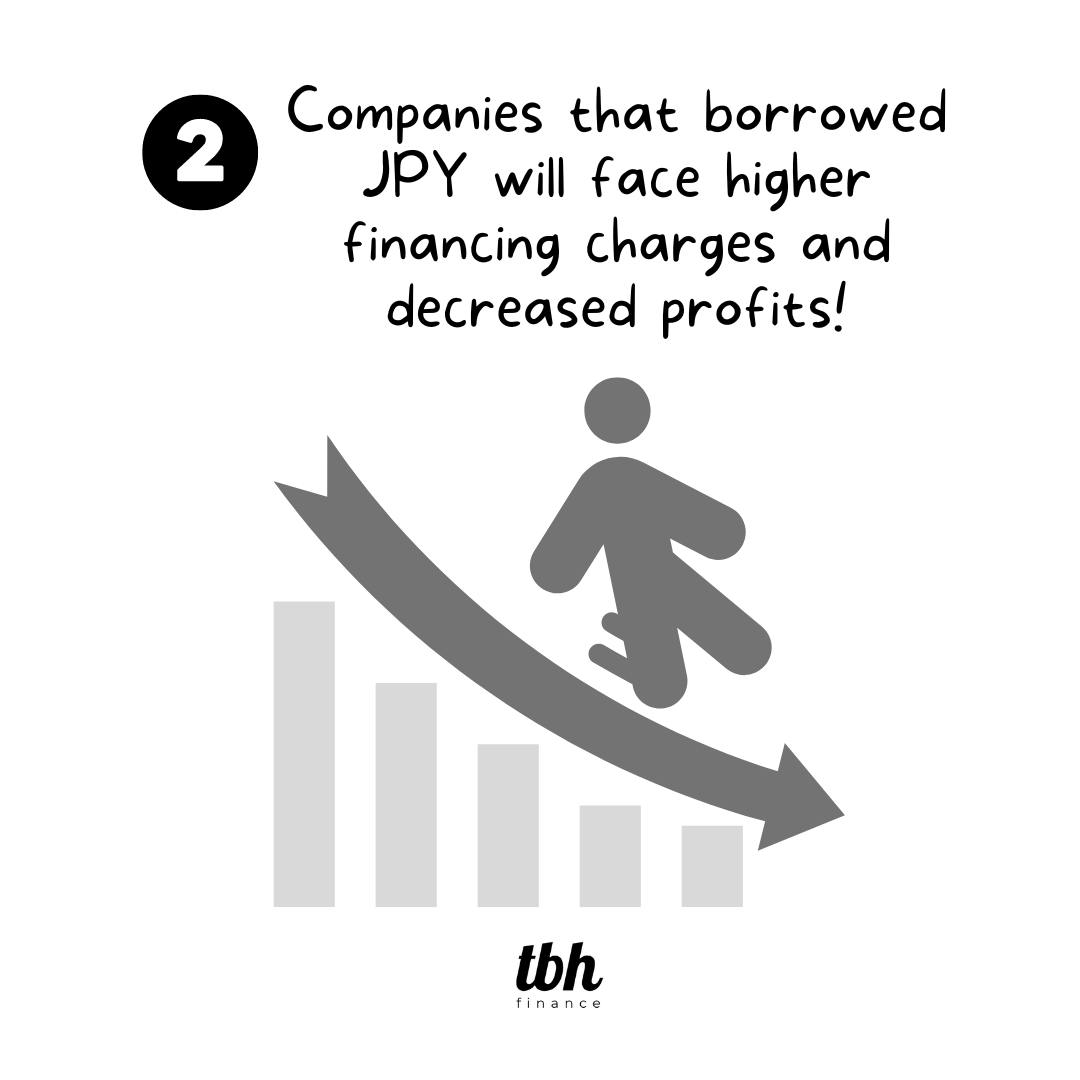Japan was one of the last few countries that were keeping interest rate low.
But the stance changed two days ago.
The Bank of Japan (BOJ) hiked interest rate from 0.25% to 0.5%.
Why the sudden move and why should you care?
Inflation in Japan was not as high as many parts of the world and hence it could accommodate low interest rates to spur economic growth.
But inflation has been climbing and the October reading showed that the inflation has jumped 3.7% from a year ago.
Although it wasn't as high as the US inflation rate of 7.7% (Oct), BOJ probably wanted to rein in inflation before it gets out of hand.
The rate hike is just a small increment, as 0.5% is much lower than the 4.25%-4.5% range in the US.
But it has a butterfly effect.
First, the Japanese Yen (JPY) will strengthen. Following the rate hike announcement, USDJPY dropped about 4% in a day (means JPY strengthened against USD, 1 USD exchanged for less JPY).
This might signal the end of the JPY weakness.
Due to the interest rate differential between the US and Japan in the past 1 year, USDJPY has gained 16% (one of the more lucrative forex trades this year).
Those who have planned to go Japan next year might want to consider buying JPY now. This is because JPY is likely to strengthen further if BOJ continue to hike rates and narrow the difference against the US interest rates.
As for investors, it doesn't mean zero impact if you don't buy Japanese stocks. The reason is that companies are more global now and a US company may have exposure to JPY. If so, this is a piece of good news as their forex losses will improve next year.
That said, companies that borrowed JPY will face higher financing charges and decreased profits.
Japanese exports would also get more expensive as JPY strengthens. This include Japanese cars, electronics and even Don Don Donki snacks.
Second, rate hikes are generally negative for stocks. We have seen how the US stock markets were pulled down by rate hikes in 2022.
Japan isn't an exception. Nikkei 225 index has already declined as much as 3.6% in a day following the announcement.
Japan stock market isn't as popular as its soccer team in the World Cup to foreigners.
But it is still the world's third largest economy. Any changes in policy direction will have impact to the rest of the world and we can feel it in our pockets one way or another.











